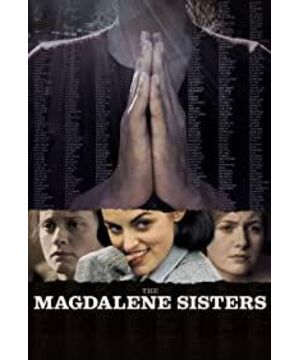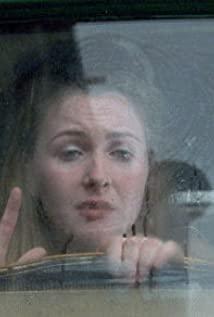The story of the film "Sister Flowers in the Brothel" took place in the 1960s. In our impression, it was an era when the wave of revolution and rebellion swept the world: the hippie movement in the United States was in full swing, Godard and Truffaut in France took to the streets, and the Beatles in Britain were creating a "beatie frenzy". ". The world is changing drastically, but Ireland, which is close to the UK, is still abiding by the Catholic rules and precepts in its own way. In Ireland at that time, there was an institution called "Bad Women's Correctional Home", which was responsible for imprisoning "bad women" and used strict behavior control, poor lifestyles and heavy manual labor to deal with "bad women". "Soul purification", hoping that they can wash away their crimes and ascend to heaven. The criteria for judging "bad women" are varied: it may be that they give birth to children out of wedlock, which has humiliated the whole family; it may be that their cousin raped at the wedding banquet, but the family dare not say anything; it may even just attract too many men and “have a problem with men”. The temptation".
The director's critical attitude towards this system is firm and clear. The whole film is full of the director's criticism and sarcasm in terms of plot and lens language. At the beginning of the film, the three heroines were taken into the nuns’ room and received the first admonitions given to them by the nuns of the correctional institution. But with all kinds of high-sounding moral preaching, it was the nuns focusing on counting money and the accounting book. A close-up of the word "dividends" on the top-this is the material result of the "work atonement" of "bad women" for the nuns. When Bernadette and Rose fled at the end of the film, facing the vault key and the door key, the nun finally chose the vault key and let the two escape. This choice also made a moral sentence on behalf of the director—the nun gave up. The purpose of "education", which is not necessarily correct, negates the last point of the meaning of the existence of the correctional home. It is the same as the mournful "You are not a man of god" that Kristina called out before. Together they constitute the director's harshest denial. Yes, this is the truth of the matter-you are not God's people, you are not worthy to be God's servants, messengers, and spokespersons. When you change a person’s name just because you have the same name, when you order women to take off their clothes for a boring pastime, and let you make comments on their sexual organs, when you use sex as a bargaining chip for soul purification, When you sit behind an iron fence and have breakfast with the "bad women", when you are ruthless at home, but flattering to rich businessmen and bishops in every way, this includes ignorance, parochialism, discrimination, arrogance, and cruelty. How could you Is it equated with the religious spirit of fraternity and tolerance? The penitentiary is actually a place abandoned by the gods, and it is filled with nothing but the alienation of mankind by power.
Although the director has said that considering the audience's receptivity, he has not yet put more outrageous facts on the screen, but the sharp criticism of the movie still easily causes the audience to worry about his "extreme". However, in my opinion, this film is acrimonious but not mean, and the director's philosophy is actually included in the lens. The use of lighting throughout the movie tends to be brighter and realistic, trying to explain a calm and restrained attitude. The depression, claustrophobia and anger of the movie actually come more from the story itself (rather than the image)—this also makes the climax part. The emotional catharsis becomes solid and powerful. And the various statements about the superiority of religion actually cannot help the correctional institution clear the slightest culpability, because it is not a religious issue at all. The camera in the hands of the priest in the film may have given us enough enlightenment-in front of the priest’s camera, the nuns became peaceful and elegant, even a little shy, very different from the image of the lazy and evil witch in daily life, the priest even started Instruct the nun to perform. However, this kind of performance is not intentional for the pastor and nun, but just their natural reaction under different circumstances, which is a manifestation of ignorance and lack of introspection. This portrayal of ignorance runs through the whole article. Those arrogant and greedy nuns, those old women with Stockholm syndrome, reveal the director's thinking from two aspects-it is the victim's ignorance that gives the nun the absurd rights. , And the nun’s arrogance has caused an absurd abuse of power. If not, how could the rulers of these correctional centers suddenly become so vulnerable under Bernadette's copper candlestick?
View more about The Magdalene Sisters reviews











